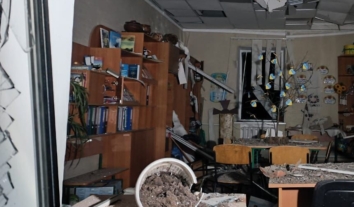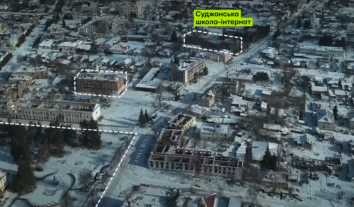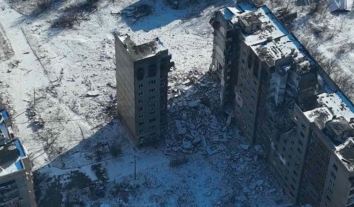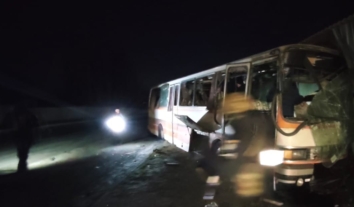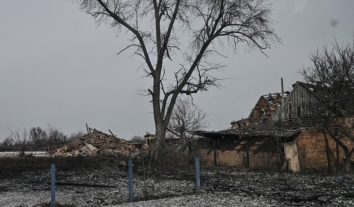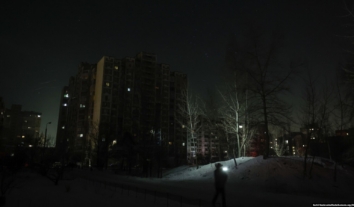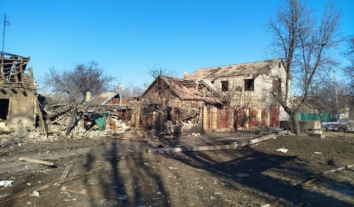Right to fair trial violated in eastern Ukraine, OSCE reports
The citizens’ right to fair trial is violated in eastern Ukraine.
This is stated in the report of the OSCE “Access to Justice and the Conflict in Ukraine.”
The report says that the access to justice is limited by a number of factors, including the lack of legitimate and effective judicial services in non-government-controlled areas, the diminished capacity of relocated courts and prosecution offices and movement restrictions between government and non-government-controlled areas and the intentional destruction of case files by the members of the illegal armed formations in Luhansk and Donetsk regions.
The loss of files has led to the suspension or complete termination of many pending legal proceedings. People in non-government-controlled territory attempting to submit claims or attend court hearings in government-controlled territory are also often forced to travel long distances through conflict-affected areas. The inability of the Ukrainian postal service to operate in “DPR”- and “LPR”-controlled areas also prevents notice of proceedings.
The OSCE believes that the process of court relocation, and the development of parallel “justice” systems, has also led to the arbitrary deprivation of liberty of people in government- and “DPR”- and “LPR”- controlled areas.
“In government-controlled areas, people are subject to continued detention as the loss of case files prevents convicted people from lodging an appeal. Moreover, pretrial detainees accused of serious crimes are subject to indeterminate periods of detention as prosecutors attempt to rebuild case files,” reads the report.
The OSCE Special Monitoring Mission calls on all authorities and those claiming to control areas outside government control to ensure that case files are where possible restored and individuals are released from illegal or arbitrary detention. The monitoring mission also requests the Government of Ukraine to develop guidance on restoration of case files and emergency action plans and on the international community to support these efforts.
Beginning in September 2014, and pursuant to these lists and additional orders, eight courts were relocated, and ultimately transferred, to areas under government control. During the same period, 51 additional first instance courts, constituting all other courts in non-government-controlled areas, were closed and their jurisdiction was transferred to district courts in areas under government control.
The prosecution offices were also relocated to government-controlled areas. In contrast to courts, however, there do not appear to be any explicit orders governing the process by which prosecutor’s offices were to be relocated. The Prosecutor General’s Office informed the SMM that as the situation worsened the public prosecution offices of Donetsk region and Luhansk region (34 district prosecution offices) were relocated to Mariupol and Sievierodonetsk.
The OSCE notes that the basic services are therefore inaccessible including issuing power of attorney, purchasing or selling real property interests, drafting wills, inheriting property and travel with minors across certain borders. Further compounding these problems are reports that “DPR” have stored and sealed notary files and refused their transfer to Ukrainian authorities.
The Special Monitoring Mission has also received inconsistent statements concerning the applicable law in the territory of the illegal armed groups in the Luhansk region. The representatives of the “LPR” stated that they face challenges in recruiting professionals including judges, prosecutors and support staff, further compounding the challenges involved in establishing an entirely new justice system. Shortages include recruitment of “judges” as many “candidates” have moved to government-controlled territory.
The OSCE observes that the “justice system” of the Donetsk illegal armed formation has been created “without transparency and in an ad hoc manner.”
According to the OSCE Mission’s interlocutors, “DPR” “courts” include a “supreme court”, “city” and “district” “courts” and “specialized” “courts” including “arbitration courts” and “military courts”.
The “General Prosecutor’s Office” of the “DPR” stated that the “judicial system” is in the process of being established with “courts” operational in Horlivka, Makiivka, Starobesheve, Amrosiivka, Khartsyzk, Shakhtarsk, Yenakieve, Novoazovsk, Telmanove, Dokuchaevsk and Yasinuvata. The “DPR” reported that over 20,000 court cases and materials were processed or currently before “courts”, including criminal, civil and administrative cases and that 4,855 “court proceedings” had commenced against 5,673 people, with a total of 1,113 people kept in “custody.”
The OSCE that the absence of effective and transparent judicial services, coupled with the removal and obstruction of services by the Government, raises serious access to justice concerns for people in “DPR”- and “LPR”-controlled areas. As the “DPR”- and “LPR”- “justice systems” are largely undeveloped and unable to provide many basic services to people in the region, flexible solutions must be adopted in order to ensure that basic legal rights, including government benefits and property rights, are realized as guaranteed by the ECHR and the Constitution of Ukraine and as enumerated in Ukraine’s international commitments.
The OSCE recalls that the Article 13 of the ECHR obliges State Parties to provide an effective remedy to address violations of the Convention.
“While States have discretion in how to comply with this obligation, effective remedies must be accessible, capable of providing redress and offering reasonable prospects of success,” reads the report.
As a reminder, Article 6 of the ECHR, addressing fair trial rights, includes guarantees of procedural rights, the right of access to a court, the right to enforcement of judgments and the right to finality of court decisions.

